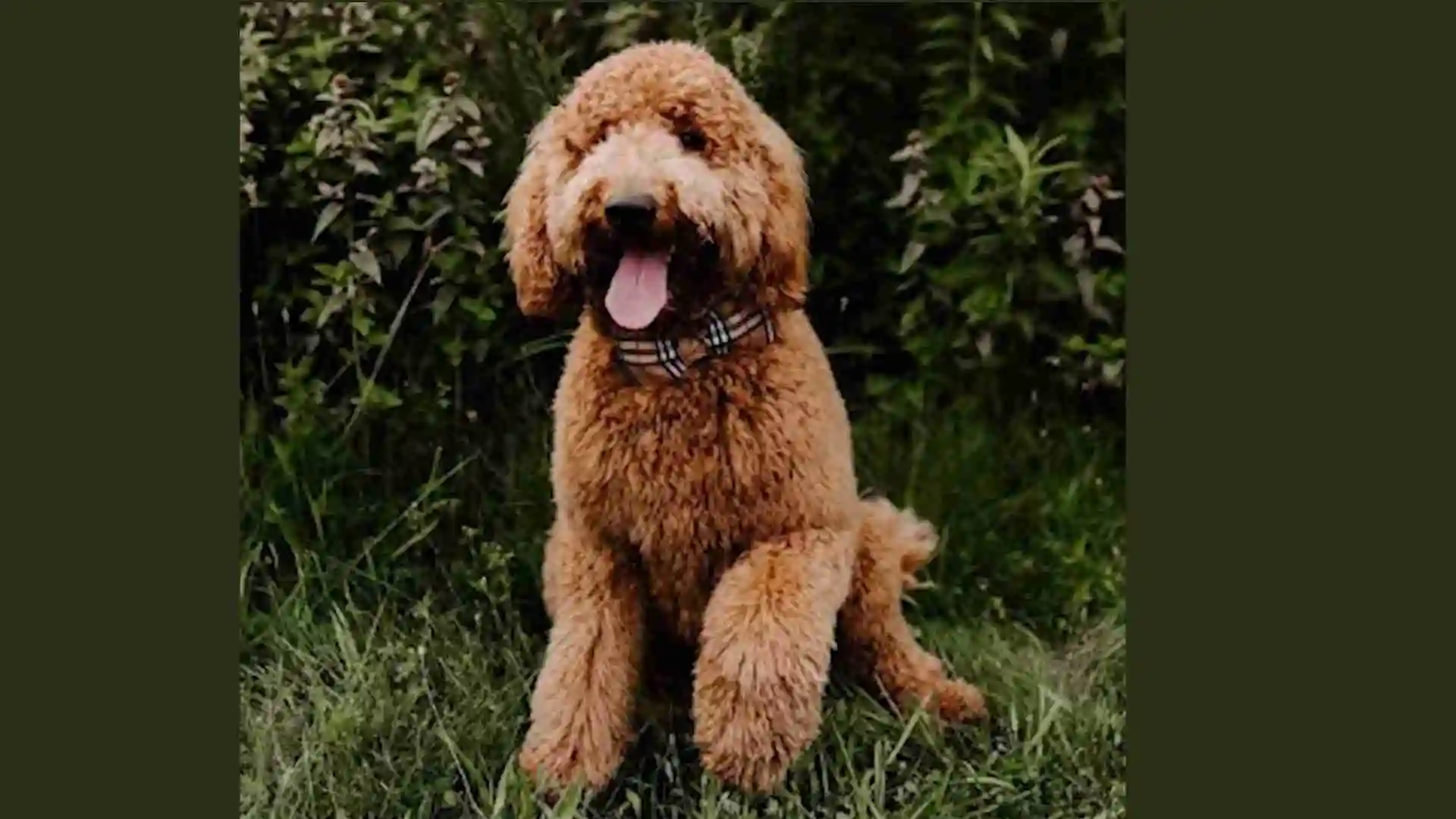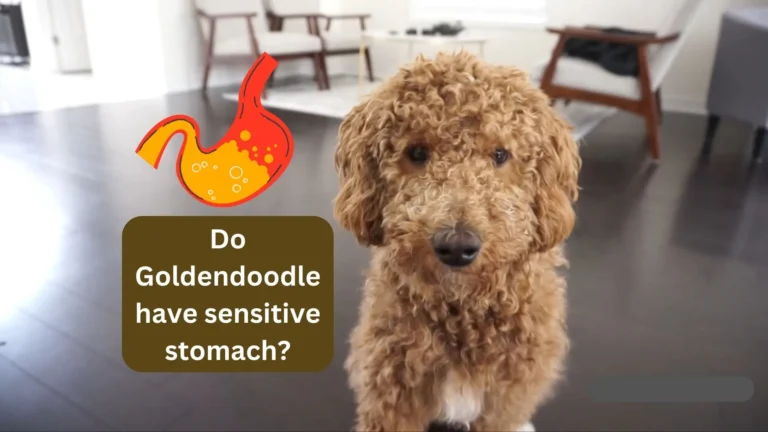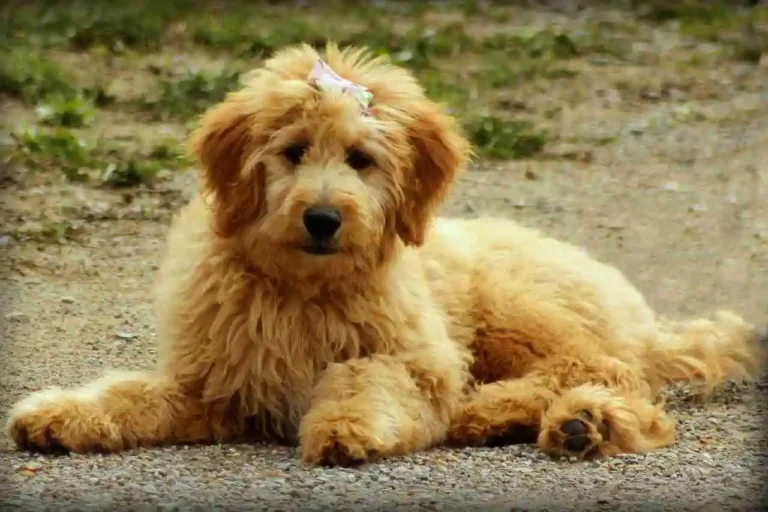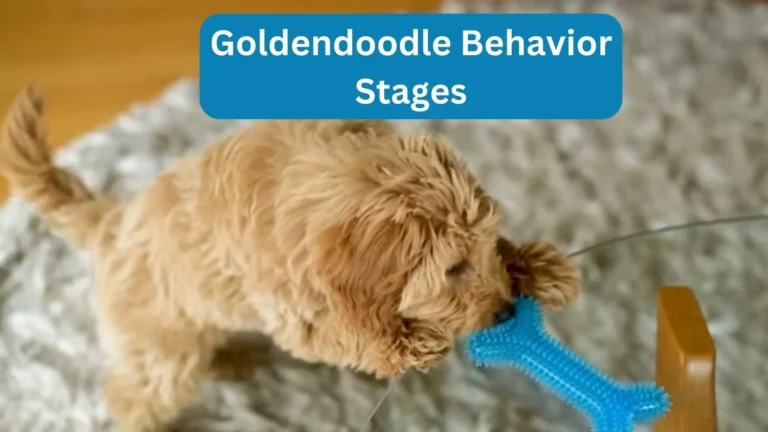Why is My Mini Goldendoodle aggressive?
Mini goldendoodles tend to be affectionate and loving dogs and they want nothing more than to please their owners and family members. But actually, why is my Mini Goldendoodle aggressive? Like any other dog breeds on the Earth, mini Goldendoodles may become aggressive due to lack of training, early socialization, or unknown fear.
Behavior improvement techniques such as positive reinforcement and rewarding your dog when it does something good during training help to manage dog aggression. Giving up or reducing regular physical and mental stimulation also plays a key role in controlling it. In this article, we will discuss various factors that make the mini Goldendoodle aggressive and possible solutions to get over the situation.
Potential Causes of Mini Goldendoodle’s Aggresion
Goldendoodles tend to be friendly dogs but they may become aggressive due to fear or anxiety. This behavior could include barking, licking, chewing, snapping, or biting and is typically addressed through training, desensitization, and positive reinforcement programs. Consult the vet if the situation doesn’t fall under control within a few days.
Noise, Knocking, and Other Causes
Fear-based aggression in Goldendoodles can be caused by loud noises such as fireworks or sudden sounds like someone knocking on the door continuously. Lack of socialization with other puppies, cats, birds, and young kids, especially with people and other dogs. Therefore, early exposure is crucial to develop social confidence among them.
Health Issues and Resource Protection
Fear-driven aggression can arise for several reasons, including resource protection, isolation, and health issues. Resources could include food, toys, or even personal space that dogs might feel threatened or unsafe in. When this occurs they may attempt to defend these possessions by biting or nipping at them if threatened or unsafe.
Isolation and Unsafe Environment
Resources can also be protected by placing them in a crate or safe area where dogs don’t have access. Isolation is another cause of aggression in dogs, particularly with children or elderly adults. It can be triggered when left alone for extended periods while the owner is away at work.
Health Problems and Issues in Surroundings
Health problems may also cause aggressive behavior as dogs become more aware of their surroundings or react violently when experiencing pain, which in turn triggers aggressive behavior from them.
Pain and Illness Role of Aggression
if your mini Goldendoodle is experiencing physical discomfort or illness, it can often trigger aggressive behavior. Therefore, it is essential to monitor for signs of pain or illness in your dog. So, take good care of the comfort of your dog and devise good methods and environments to make your dog comfortable at all costs.
Teething of Puppies
Another common factor behind Goldendoodle’s biting or aggressive behavior is teething. While it is an entirely normal stage for all puppies, teething may lead to aggression if not managed appropriately and resolved over time.
Poor or Lack of Socialization
Poor socialization of Goldendoodle puppies is often the source of their aggression later on in life. It leads them to develop fear-based aggression as adults.
Food Aggression in Goldendoodles
Like any breed, Goldendoodles may experience food aggression when eating time comes around. This often stems from food-guarding behavior whereby a dog attempts to protect its meal or bowl from other dogs or people attempting to steal from it. It is potentially dangerous both for them and anyone involved
Territorial Issues
Other causes for Goldendoodle aggression include territorial or resource guarding and confusion. It might seem trivial to you but it’s a big thing for the dog.
Solutions to Overcome Aggression
Professional Help
Aggression should never be ignored at any cost. If your pet displays any form of aggressive behavior such as growling or biting then it’s better to seek professional help immediately from a trainer to address any underlying causes. Slowly and gradually you will be able to help your dog overcome its aggression.
Consult a Reputable Breeder When Buying the Puppy
Genetic disorders are also a risk when it comes to aggressive behavior in Goldendoodles. So you can reduce that risk by buying from reputable breeders and getting annual check-ups at the veterinarian’s.
Mental and Physical Simulation
Goldendoodles are intelligent, affectionate, and social dogs who love to constantly interact with human beings. However, without sufficient mental stimulation, they may become bored quickly. It can lead to destructive behavior such as chewing or biting. By providing good toys, puzzles, and interactive games, you can help handle boredom as well as behavioral issues in the long run for your amazing mini Goldendoodle.
Teething Toys and Bones During Teething
Some owners find it beneficial to give their puppies chew bones or teething toys as a distraction. As soon as the puppies start to accept flexible toys and healthy bones, then their aggression reduces quickly.
Regulating Cleaning and Grooming of the Dog
Goldendoodles may experience itchy skin issues around their ears and eyes, caused by infections or environmental allergies to pollen or dust. You can help address these health concerns by regularly cleaning out their ears and grooming them to maintain skin health. Overall, you will be able to control the aggression of your mini Goldendoodle.
Early Socialization with Pets and Humans
Goldendoodles, as companion dogs, do not tend to attack humans or pets. It is, however, common for them to show signs of aggression when feeling threatened or anxious. Socialize your dog with existing pets and humans from the very days after their birth or when you bring them to the house.
Early exposure to different people and environments should be prioritized so your pup doesn’t become overwhelmed or scared when exposed to loud noises or unfamiliar people. Teaching basic commands as soon as possible also helps ensure proper behavior towards strangers.
Tackle Their Boredom
Many pet owners are stunned when they discover that their affectionate Goldendoodle has aggressive tendencies due to boredom. If you are a dog lover then you might be aware of the fact that dogs are social. Mini Goldendoodle immediately gets bored when it doesn’t have a new thing to do and lacks exercise.
Well! The situation is interesting and easy to handle. Firstly, give a good amount of time to your dog daily and it will forget its boredom. Secondly, ask your children to take your dog to the yard and play with it. You can also plan to take your dog to a healthy picnic spot and it there.
Some Other Aggression Mitigation Measures
Plan a regular training session for your dog.
Plan a dedicated time for exercise and mental simulation of your dog.
Be careful when your dog is going through the teething phase. Provide soft toys and liquid food instead of solid food.
Provide a comfortable and safe environment for your dog.
Take good care of your dog and find out if it is suffering from any kind of discomfort or not. If it is facing any issue, then consult the vet immediately.
Taking your dog to a healthy spot is always beneficial.
Taking these measures together will help ensure a long, happy relationship with your lovely Mini Goldendoodle. It will help in countering the aggression of your dog effectively and quickly.
FAQs
Do Goldendoodles are known for aggression?
No, generally they aren’t known for aggression.
Why does my Goldendoodle growl at me?
The dog may be unhappy, fearing something, or feeling any kind of discomfort.
How to stop a dog from growling at people?
Give confidence to your dog and ensure that everything is calm and okay, it will stop growling within a few seconds.
Does growling mean aggression for the Mini Goldendoodle?
Yes, growling and barking are signs of aggression.
Conclusion
Why is my mini Goldendoodle aggressive? Fear, health issues, discomfort, and unnecessary noise can cause aggression in your dog. Aggression shouldn’t be left unattended as it can lead to serious injuries. Therefore, plan regular exercise, and training, socialize your dog with humans and pets, and do other tasks which we recommended. In the end, your dog will behave well!







